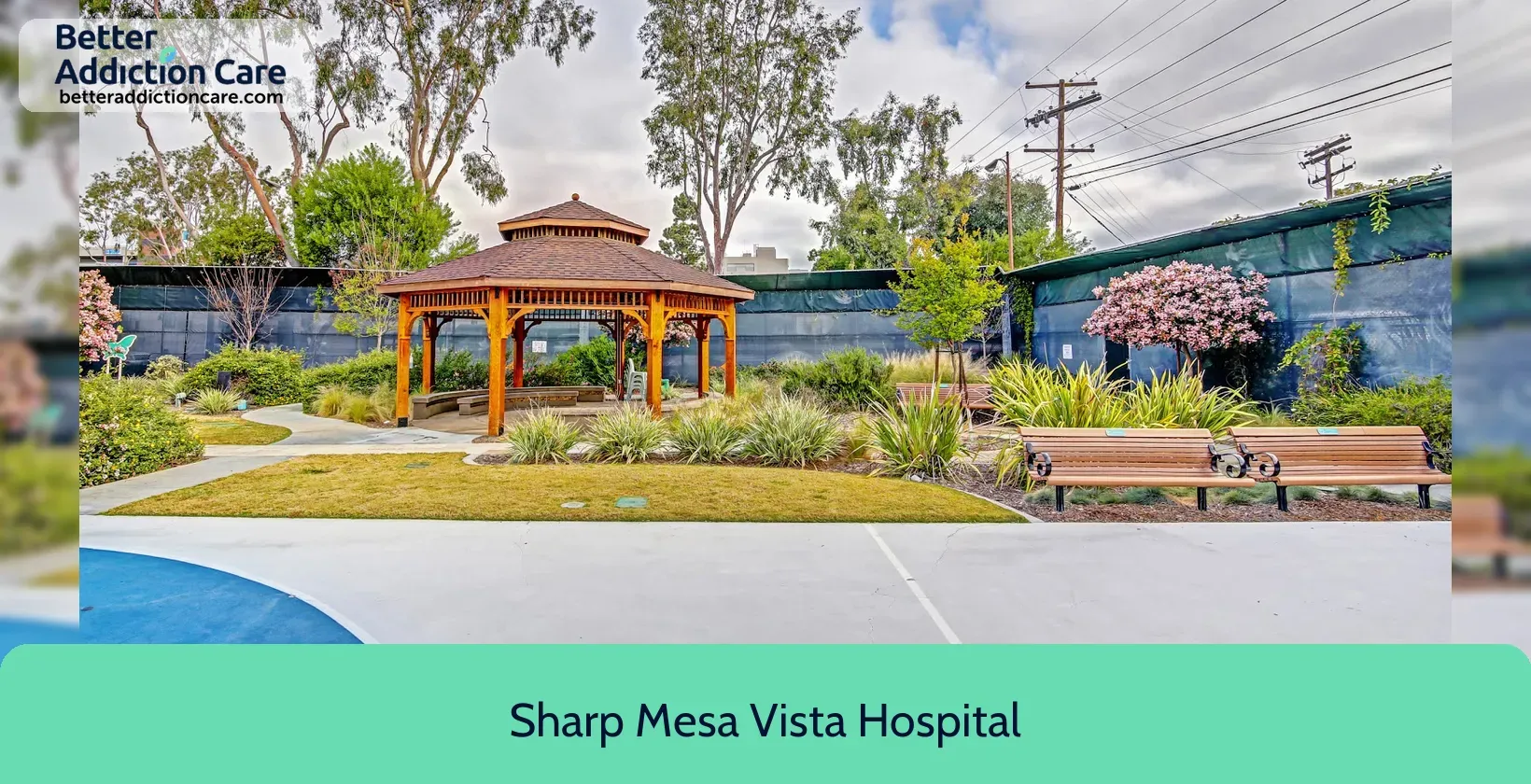Sharp Mesa Vista - East County Outpatient

Overview
Adults with emotional and behavioral problems can get a lot of different mental health and drug abuse services at Sharp Mesa Vista Hospital in San Diego, California. The hospital has services for both inpatients and outpatients, and each person gets care that is specifically designed to meet their needs. The facility doesn't have any faith-based or gender-specific programs, but it focuses on being open to everyone who needs mental health help.
The hospital offers both inpatient and outpatient care, as well as an intense outpatient program, partial hospitalization, and dual recovery treatment for people who have both a mental illness and a substance abuse problem. Cognitive Behavioral Therapy (CBT), activity therapy, anger management, specialized group therapy for people with major mental illness, and Electroconvulsive Therapy (ECT) for severe depression are some of the ways that Sharp Mesa Vista Hospital treats its patients. The hospital also has special programs for trauma treatment and helps older adults and teens and young adults who are going through a transitional period. Sharp Mesa Vista meets the highest levels of care and service delivery because it is accredited by The Joint Commission.
Sharp Mesa Vista - East County Outpatient at a Glance
Payment Options
- Private health insurance
- Cash or self-payment
- Medicare
- Federal military insurance (e.g., TRICARE)
- Self-pay options
Assessments
- Comprehensive mental health assessment
- Comprehensive substance use assessment
Age Groups
- Adults
- Children/adolescents
- Young adults
Ancillary Services
- Case management service
Highlights About Sharp Mesa Vista - East County Outpatient
6.79/10
With an overall rating of 6.79/10, this facility has following balanced range of services. Alcohol Rehabilitation: 8.00/10, Drug Rehab and Detox: 6.31/10, Insurance and Payments: 6.00/10, Treatment Options: 6.85/10.-
Alcohol Rehabilitation 8.00
-
Treatment Options 6.85
-
Drug Rehab and Detox 6.31
-
Insurance and Payments 6.00
Accreditations
The Joint Commission:

The Joint Commission's addiction and behavioral health accreditation signifies a facility's commitment to high-quality care. It involves rigorous evaluations and assessments of clinical practices, ensuring effective, evidence-based treatment. Accreditation showcases a dedication to continuous improvement and patient safety, instilling trust among patients, families, and healthcare professionals. It's a mark of excellence in addiction and behavioral health care.
Treatment At Sharp Mesa Vista - East County Outpatient
Treatment Conditions
- Mental health treatment
- Alcoholism
- Opioid Addiction
- Substance use treatment
- Co-occurring Disorders
Care Levels
- Detoxification
- Outpatient
Treatment Modalities
- Family counseling
- Individual psychotherapy
- Cognitive Behavioral Therapy
- Dialectical Behavior Therapy
- Nicotine replacement
Ancillary Services
Languages
- Sign language services for the deaf and hard of hearing
- English
Special Programs
- Clients who have experienced trauma

Additional Locations
Contact Information
Read our Most Recent Article About Drug Addiction
DISCLAIMER: The facility name, logo and brand are the property and registered trademarks of Sharp Mesa Vista - East County Outpatient, and are being used for identification and informational purposes only. Use of these names, logos and brands shall not imply endorsement. BetterAddictionCare.com is not affiliated with or sponsored by Sharp Mesa Vista - East County Outpatient.









